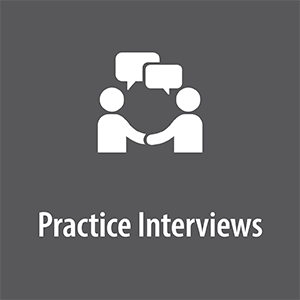| Parents | |
| Available Services | |
| Career Development | |
| Career Fairs & Events | |
| Ways to Help | |
| Salaries | |
| Students & Alumni | |
| Employers | |
| Faculty & Staff |
 Encouragement
Encouragement
- Support your student's career choice and dreams, even though they may be different from your expectations.
- Be positive and supportive when your student makes a poor decision or experiences failure.
- Provide non-judgmental listening and feedback.
- Provide a climate that is conducive to conversation about career plans. Listen, respond, and question.
- Assist your student as needed to clarify goals, priorities, and values.
- Ask questions that will motivate your student in his or her career search.
Exploration
- Allow your student to explore new ideas and have new experiences.
- Encourage exploration of new ideas, experiences and careers without being pushy.
- Talk freely and honestly about your work experience, including both positive and negative experiences.
- Willingly share your career history, including the ups and downs.
- Share what you know about various careers with your student.
- Encourage your student to explore different occupations and make resources available to aid in that process.
- Help your student look at his or her strengths and interests and clarify related career options.
- Make a point to freely compliment your student on his or her strengths and accomplishments.
- Assist your student in identifying careers in which he or she would excel.
- Encourage your student to participate in career assessments and interest inventories offered on campus and online.
- Encourage your student to take advantage of events and resources available to them at the university including professors, advisors, career consultants, career fairs, on-campus interviewing, and the website.
- Promote career development activities.
Networking
- Refer your student to colleagues, friends, and relatives who have similar career interest.
- Actively assist your student in the search for part-time/summer/volunteer work or internships that will help him or her explore a potential career path.
- Keep your eyes and ears open for any information that might aid your student in his or her search for career information.
- Help your student develop contacts for advice, information, and assistance in career planning, and eventually job searching. Put your student in contact with friends, colleagues, neighbors, relatives, and community members with experience in his or her field of interest.
- Encourage your student to develop a rapport with faculty members by taking advantages of professors' office hours. These relationships have many benefits, one being learning about internships, jobs, and graduate schools.
A Four Year Plan
Encourage your student to take advantage of OSU Career Services during all four years of college.
Encourage your student to take advantage of OSU Career Services during all four years of college.
Freshman
Sophomore
Junior
Senior
- f you can, visit the OSU campus with your student to learn about college and show support.
- Encourage your student to meet with professors, advisors, and college career consultants.
- Visit with your student about different activities on campus that are of interest.
- Encourage your student to use the OSU Career Services website to search for part-time employment and/or internship opportunities.
- Encourage your student to research career fields in their areas of interest and strengths.
Sophomore
- If your student is undecided about a major, encourage him or her to visit a college career consultant.
- Keep lines of communication open with your student and discuss careers of interest.
- Encourage your student to follow his or her passion and make choices that encompass that passion.
- If you have colleagues, friends, or relatives in a similar career, offer to setup a meeting for an informational interview with your student.
- Encourage your student to seek career-related experience over the summer, through part-time, full-time, internship, or volunteer opportunities.
Junior
- Encourage your student to take classes and join activities that will enhance their marketability in the career field they have chosen.
- Encourage your student to participate in career-related activities, such as career fairs, on-campus interviewing, and other workshops.
- Assist your student by networking with your associates, friends, and relatives.
- Encourage your student to get a career-related or volunteer experience that matches their career choice.
Senior
- Ask your student how you can help.
- Listen to your student.
- Offer to talk about your student's career goals.
- Offer to assist with networking.
- Encourage your student to participate in career activities, such as career fairs and on-campus interviewing.
- Encourage your student to make appointment with advisors and college career consultants.
- Talk with your student about graduate or professional school plans.
- Listen, be Patient and Relax.
Don't...
- Call and make an appointment for your student.
- Contact Career Services for your student's login information. Student's login credentials are confidential.
- Let your student wait until after graduation to start looking for a job.
- Contact Career Services to ask when their next interview is. This is against FERPA laws.
- Accompany your student to a career fair. This is his/her moment to shine. It will reflect poorly with employers if a parent/caregiver is seen with a student.
- Arrive to interviews and jobs with your student.
- Contact employers inquiring about your student's status.
- Attempt to negotiate for your student.







